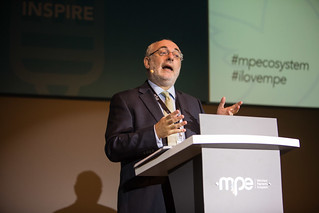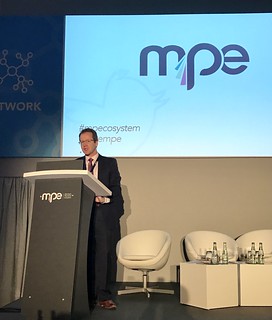We think a major focus for the whole merchant payments ecosystem in the coming year will be the new threats, opportunities and players in the emerging open banking world. Starting with the U.K.’s move to open banking in January (the implementation of the Competition and Market Authority's “remedies”, or the “CM9”) and moving ahead with PSD2 across Europe, the ability for trusted organisations to access consumer bank accounts and to not only obtain transaction information but also to instruct payments will inevitably change the landscape.
There are new opportunities for acquirers to become broad-spectrum merchant service providers (MSPs) to facilitate interaction between the open banking infrastructure and the merchant community. This very appealing vision of the future (for merchants) will draw them towards a once in a generation change at point of sale. Merchants can easily afford to incentivise customers to switch to account-to-account “instant payments” and at the same time offer considerable customisation based on customer account data.
Merchants definitely need some help, and it’s not all about payments. A recent Consult Hyperion survey found that more than 90% of merchants want to use PSD2 to reduce card fees, three-quarters of them also want to use it to reduce the impact of fraud and data breaches. An Accenture survey last year also found that half of the retailers they surveyed want to use customers’ bank account data to provide special offers and customised services at POS.
Apart from anything else we expect to see a resurgence of interest in the “decoupled debit” proposition whereby platform-provided strong authentication to retailer apps will allow them to bypass the existing card infrastructure (I have seen projections indicating that a third of European card volume could disappear in the coming years) and perhaps even the physical POS itself. I can certainly imagine self-scanning my way around Waitrose and when I hang up the scanner to leave, the Waitrose app will pop up on my phone with the total, ask me to swipe my fingerprint to confirm, and then Waitrose will instruct an instant payment from my account to theirs.
As a customer, the instant payment proposition seems to me just like the familiar debit proposition: I walk out of Waitrose and the money walks out of my account. The fact that it never goes near the existing rails is something I neither know nor care about. This, as is often pointed out (by, eg, me), is a great opportunity for new players (eg, Google, Apple, Facebook and so on) to join the ecosystem. These are players with a business model built on data, not merchant service charges, and thus the business models in the ecosystem will reorient. This was one of the key themes I picked up at last year’s Merchant Payment Ecosystem conference in Berlin, and I wrote at the time that my impression was that some of the big plays coming would be big data, analytics and machine learning.
Having said that the existing rails may be bypassed, open banking also provides an opportunity for the schemes to reinvent themselves and their propositions. (As we think that the UK is about to become an interesting, exciting and unpredictable laboratory experiment in open banking, it seems to us that Mastercard’s work with VocaLink should be a focus of industry attention in this regard.) After all, a payment scheme isn’t just a data switch that connects consumers, banks, merchants and retailers. If it was, there wouldn’t be any, because we’d all just use the internet instead. Rates, rules and rights are fields in which Visa, Mastercard, Amex, Discover et al have decades of experience to leverage through both their existing relationships and the new ones that will arise.
The retailers themselves, especially the millions of small retailers, will also benefit from this transition because a variety of new products and services will spring up to help them to manage their bank accounts, funding requirements and general financial services needs. I’m no expert on small business financing but the ability to see the details of a retailer’s bank account will surely lead to new opportunities for specialist financial services providers.
All things considered, 2018 is going to be a pretty interesting year and we are very much looking forward to learning about the new possibilities at Merchant Payment Ecosystem 2018 in Berlin. If you want to meet me or our Principal Consultant in the POS field, Gary Munro, at the the event then just drop us a note and we’ll see you there.


Comments
Post a Comment